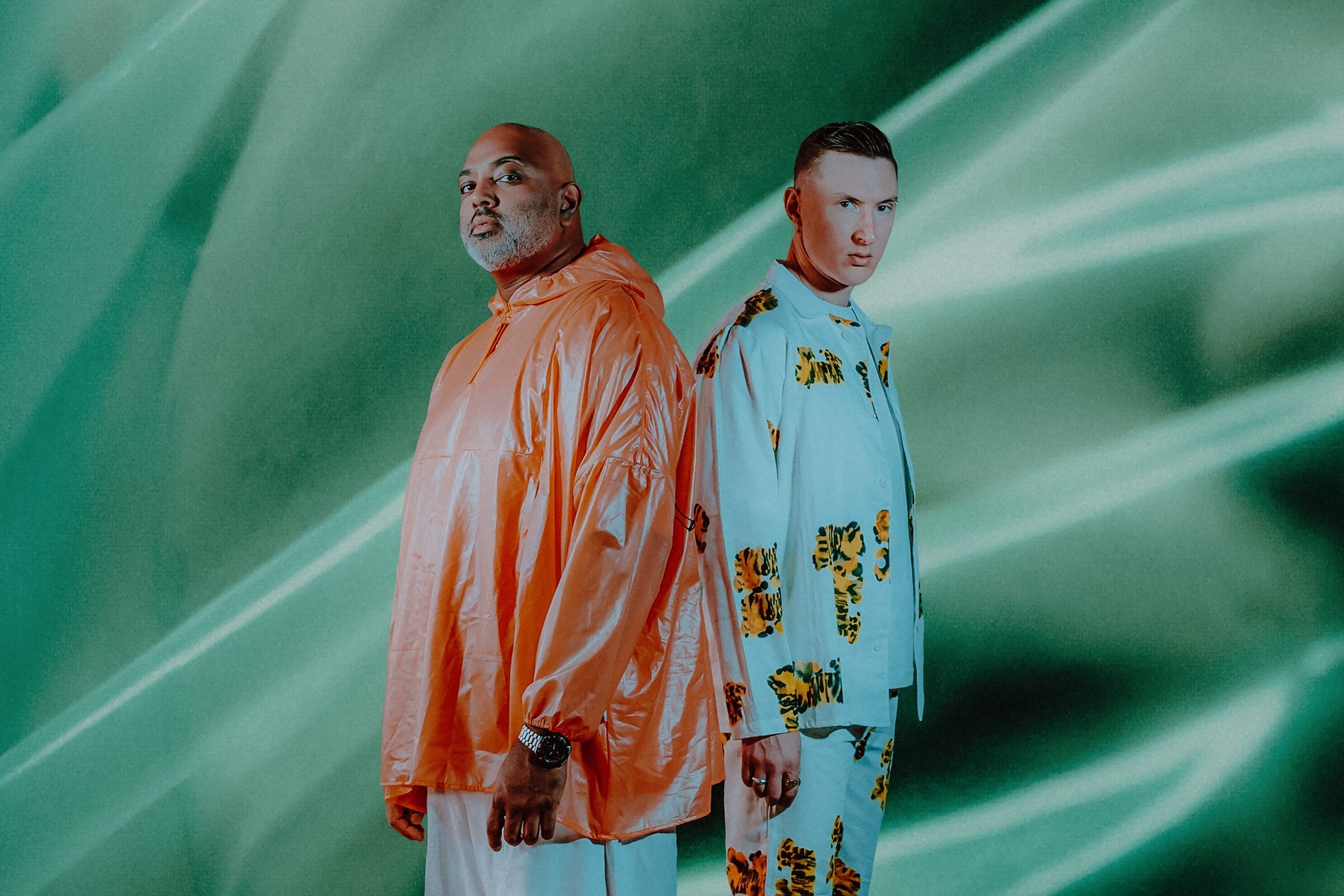 Features
Features
Creative transition: How Ivy Lab conquered the US beats scene
After emerging as UK bass experimenters a decade ago, Ivy Lab have traded bangers for cerebral beats. The duo's Gove Kidao speaks to Gemma Ross about creative freedom, imposter syndrome, and their new album ‘Infinite Falling Ground’
Ivy Lab's development from experimental UK bass outfit to a creative powerhouse in the US beat scene has been a story of relentless hard work and innovation. But when we chat transatlantic over Zoom on a rainy afternoon in London and beautiful morning in Orange County, the atmosphere is relaxed. One half of the beats and bass outfit Gove Kidao turns his laptop screen to face his 7-year-old son who’s sat beside his dad eating breakfast. “This little guy is with me,” Gove beams, as he gives me the rundown of their jam-packed itinerary for the next 10 days holidaying in America. Planned adventures include ice hockey games, sightseeing at the Grand Canyon, and a family wedding, all of which concludes when his son flies back home to England and Gove embarks on a six-week tour of the US. “I'm trying to maximise some quality time together before I'm here for quite a long spell,” he explains. “Being a visible and present father is really important to me.”
These days, Ivy Lab spend just as much time in the US as they do in their native home of London. But, it comes at a cost, as Gove has had to learn the hard way. “How can I manage to make music for Ivy Lab, be in the United States for maybe 20 weeks of the year, and spend as much time as I can with my son?” he asks. For the second half of the music duo, Jonathan J. Fogel - known endearingly as just J - that kind of pressure has built up and sent him in a different direction temporarily. J is currently taking a step back from touring and fulfilling as busy a schedule as Gove’s in a bid to relieve some of that pressure - and spend time focusing on his ongoing studies of psychotherapy. Having started out as a trio, for the next few months, Ivy Lab rests almost entirely in the hands of just one.
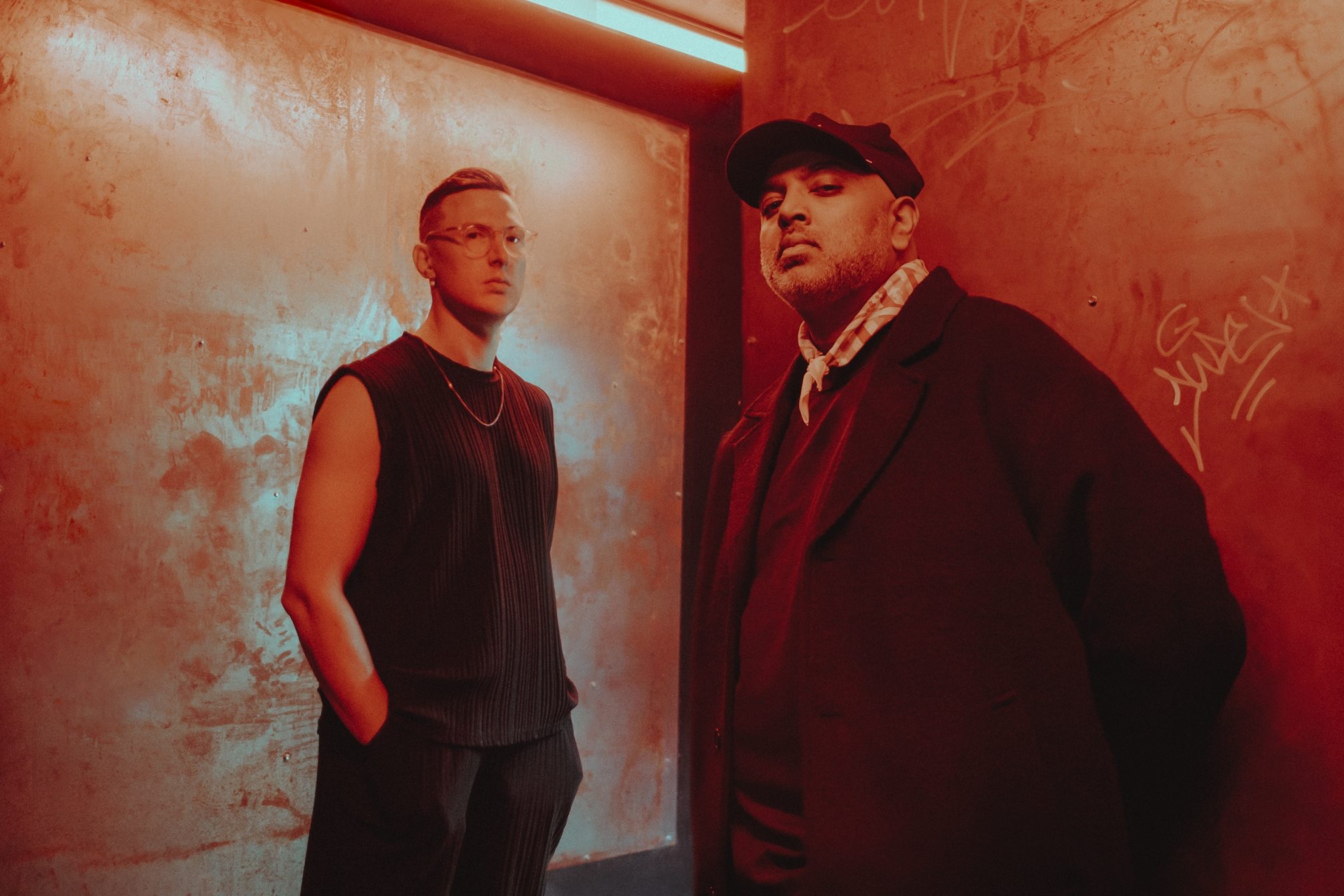
It wasn’t always this way. When Ivy Lab first booted up in the early ‘10s as a combination of three solo drum ’n’ bass producers - Sabre (Gove), Stray (J), and Halogenix (Laurence Reading) - each of the musicians had already built a solid reputation independently. The three met through music forums or mutual friends and decided collectively to have a kick at a new ball. When they formed, their music palette opened up and allowed them to combine all of their practices thus far under a new alias. But, “saying Sabre, Stray and Halogenix was a real mouthful,” Gove jokes, and so the trio thought up a name that incorporated their interim home studio, known sometimes as a ‘lab’ by producers, and the ivy that grew around it. Ivy Lab was born and quickly built upon their discographies with more experimental cuts seeing it as grounds for new research.

“Stray had started making a lot of strides with instrumental beats stuff, similar to what we do now,” Gove recalls. “We started making what people were calling halftime, and realised that there was a moment to be had with it and that maybe we could have two strings to our bow where we did the liquid thing and the deeper, soulful end of d’n’b, but also have a more experimental edge, which is important to Stray.
“I think the age difference was really positive: they were 19 or 20 at the time and I was almost a decade older,” Gove says. “There was this great mix of youthful exuberance and the kind of experience and level-headedness that came from having an intergenerational organisation together”.
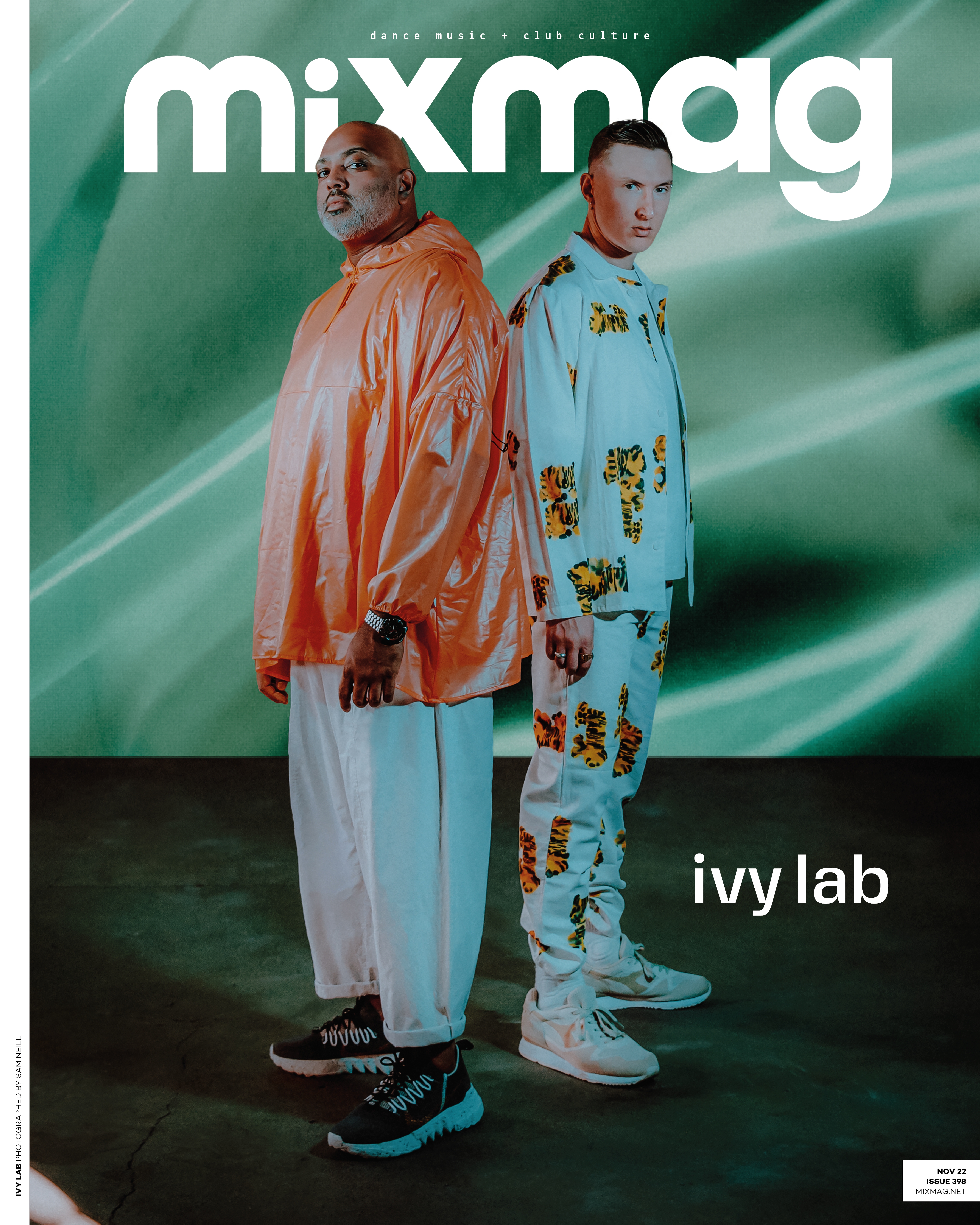
By 2018, Halogenix departed from Ivy Lab as we once knew it, ushering in a new era that came alongside what they called their “proper” debut album ‘Death Don’t Always Taste Good’, following the Ivy Lab trio's ‘20/20 Volume 1’ LP in 2015. When three became two, the elasticity of Ivy Lab’s experiments continued, pushing them in a direction of beats-oriented music taking from the element of the US hip hop scene and combining it with experimental bass. “At that time, we didn't know that we wouldn't stick about as part of the drum ’n’ bass ecosystem,” Gove explains. Their contribution to the future beats scene was picked up by a new generation of artists running with the stylings of the genre.
Read this next: Flying Lotus: "I listen to 'Drukqs' all the time"
“There needed to be a dip-the-toes-in-water moment for all of the halftime and hip hop stuff, and it was only when we did that, that we realised that Ivy Lab could be a playground. In the BPM that we work in and the kind of genres that we exist in, I think we were quite strict and methodical with that. When we knew there was a world where we could operate at 85 BPM, we said: let’s do our best to embed ourselves in that and get as close to the arrowhead as we can be,” he adds. “We knew that if we wanted to make any real inroads in instrumental beats music, we would have to do that in the US.”
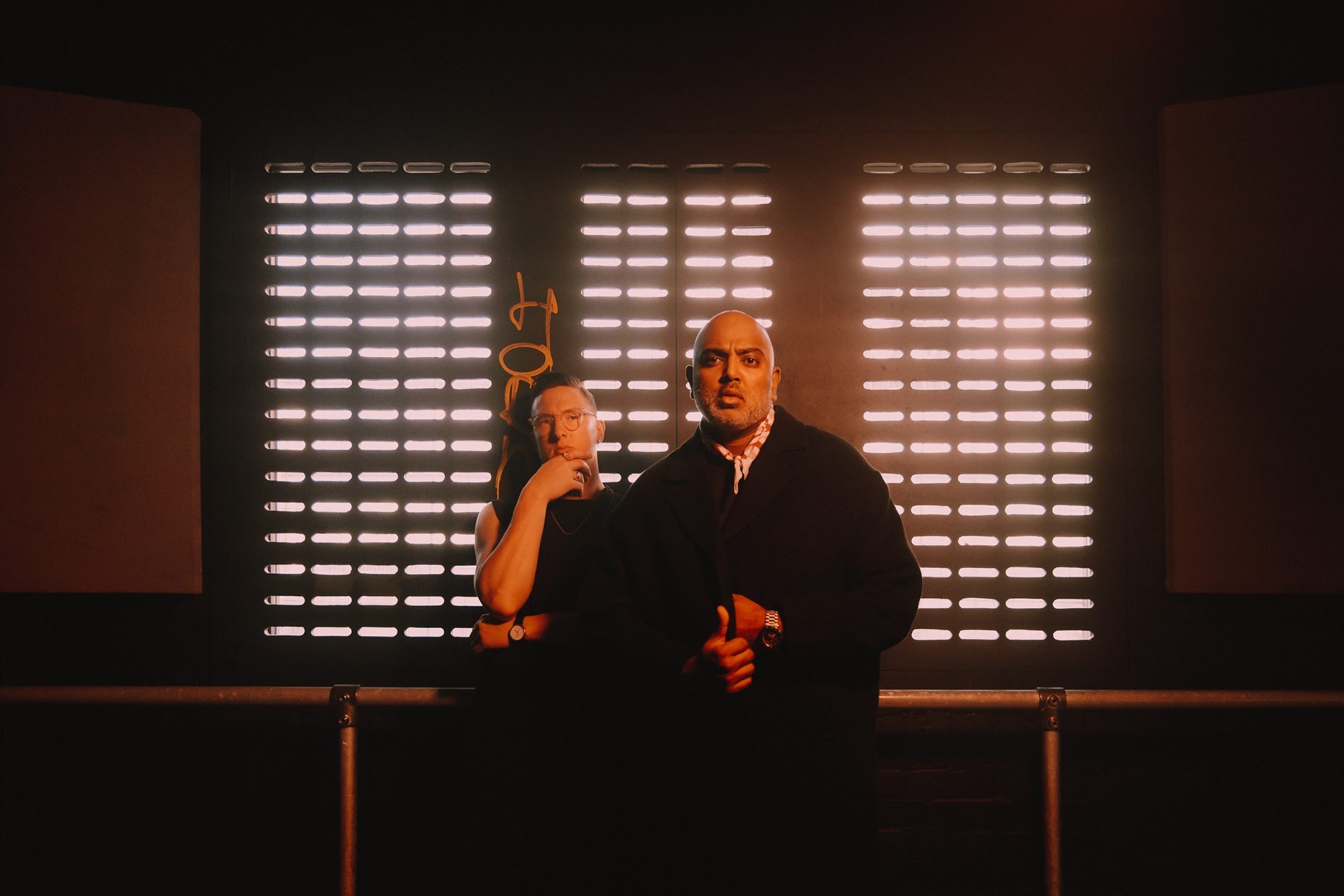
A beats-based renaissance was yet to happen here in the UK beyond its stagnant cousin of future bass, but over in America, the LA beats scene thrived. It was a musical playing field, with artists such as Daddy Kev and Flying Lotus at the fore of it, and Ivy Lab stepping into some rather large shoes as part of the genre’s second generation - or “beats 2.0”, as Gove calls it. After coming away from California’s Lightning in a Bottle Festival in 2017 - which was arguably their biggest-ever billing at the time - Ivy Lab recognised where the majority of their fanbase lay: the US. “We slowly, bit by bit moved ourselves over and tried to establish whether we were going to bring our crowd with us, asking ourselves: is this going to work? Do we need to pause, turn around and go back to where we came from?” Gove explains.
Read this next: The Beat Scene 2.0
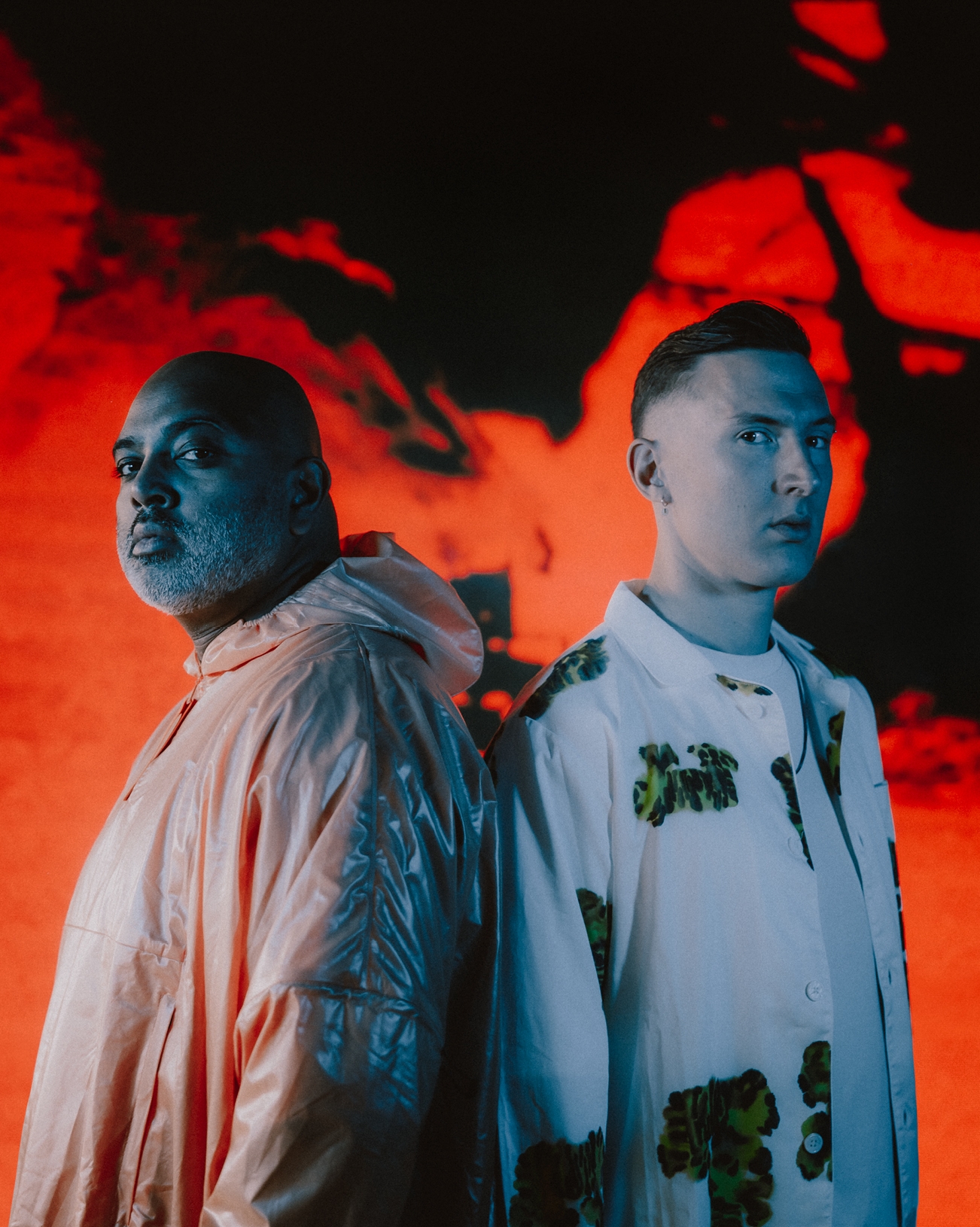
He attributes that concentration of fans to a more evenly spread “distribution of interest” in the different forms of electronic music in the US - it’s part of the reason that Ivy Lab have now conquered the States. “The fact that we can still do what we're doing now is because we walked into these American and rap-orientated spaces in a very respectful way, rather than showing up and being like, ‘Hey, we’re the hot new thing, let us in’. Because first of all, we didn't feel like we were, we felt like imposters,” he explains. Imposter syndrome is a recurring theme in our chat, even for an outfit of their calibre. Now two decades into his musical career and 10 years in the making of Ivy Lab, there’s still a resounding sense of disbelief that the pair have managed to reach such a pinnacle point in their project. Ivy Lab’s latest album, ‘Infinite Falling Ground’, helped them to see through that feeling, for a time. “We felt like we might have escaped that sense of imposter syndrome for the first time in our careers,” Gove says. “But now, a few weeks on from the album coming out, I'm going back into that headspace.”

‘Infinite Falling Ground’ is an accomplished 14-track release, and their second album as a duo. “Neither of us were in a great place when making this record, and in many ways, we haven’t been for the past 12 or 18 months. So, having to do an album that had a dual purpose of speaking to our audience, but also speaking from the soul, was quite a big undertaking for us,” Gove explains. For this next release, the duo chose to record everything at a small studio off the beaten track in Devon, where they were faced with a “candy store” type layout of new equipment to experiment with. “When we walked in there, there wasn't much of a learning curve, we were ready to go within about an hour,” he says. “It played to both J and I’s relative strengths, where I wanted to give our stuff an aesthetic, and J wanted to compose with a quality of instrumentation that played into his own historical and cultural ideas of what beats music should be. It was a really intense session.”
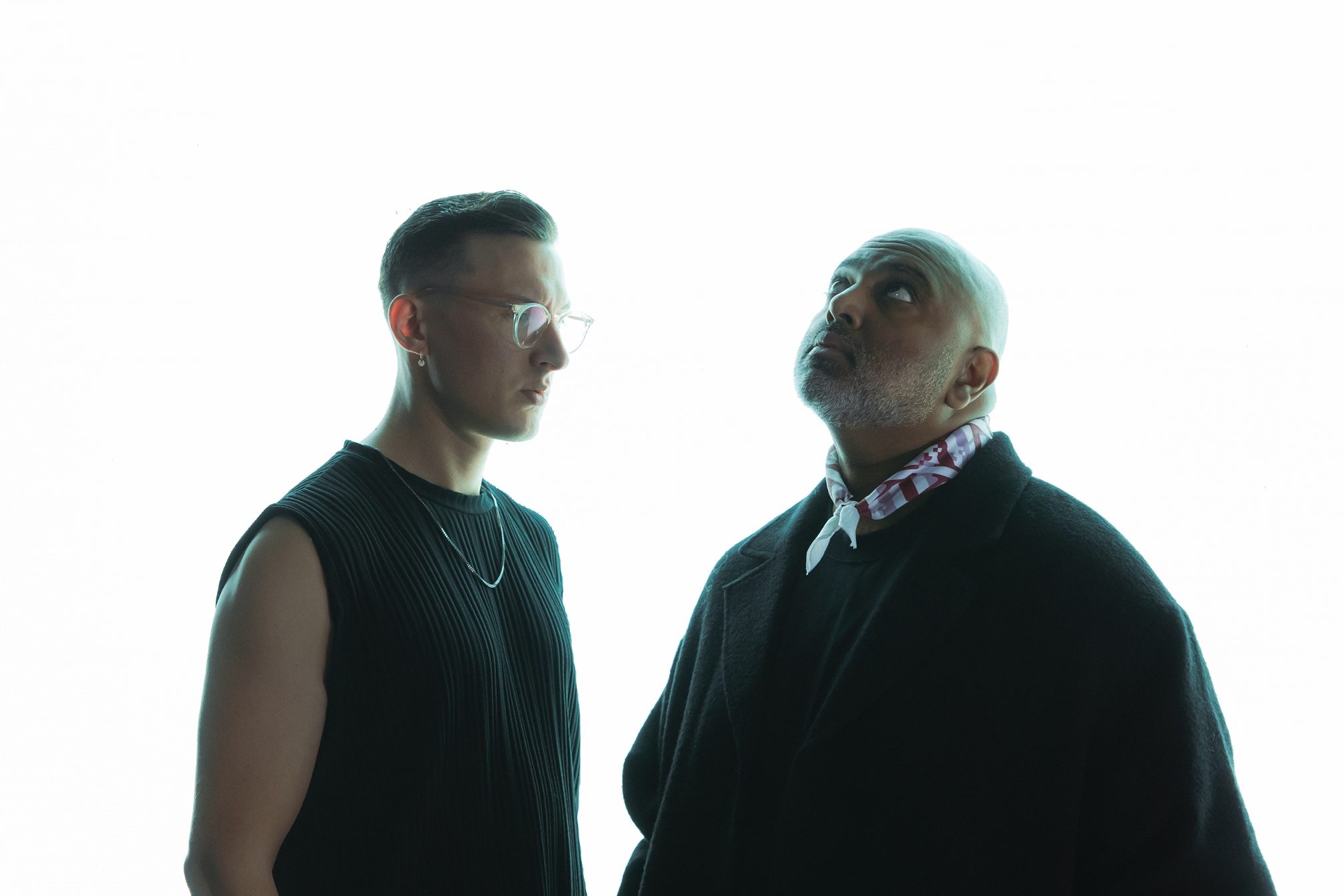
After the record was complete, he and J decided to take some time away; Gove saw it as an opportunity to put forward some ideas that had been incubating for over two decades. It was a silver lining in many ways, and the only chance he saw to fulfil those long pent-up plans, which comprised of making a full-scale live audiovisual show to go alongside an Ivy Lab production. “I wanted people to feel as if they'd been transported away from where they currently were when they consumed this album. We didn't feel like just taking it on the road and mixing one track into another,” explains Gove. The A/V performance, which first premiered at London’s FOLD in October as part of the club’s rebooted live art series Futur.Shock, is the main pillar for Ivy Lab’s current touring show in the States. Heavily assisted by the industrial setting of FOLD, the showcase played to the club’s gritty concrete setting as an art space, opposed to a bustling dancefloor — quite a switch from the usual debauchery of a Friday evening. Since the premiere of ‘Infinite Falling Ground’, Gove admits an urge to shift into cinematic territory after executing something that had been in the works - theoretically - for years.
Read this next: Spectogram art: A short history of musicians hiding visuals inside their tracks
“The architecture and staging of the venues that we play don’t do as much of the speaking for us as we’d like - certainly not in a way of expressing the emotion of, quite frankly, the pain that went into making this album,” he says. “Jacob of Lake Hills who directed all of the content, he's very good at expressing darkness. He knew how dark this album was in many ways, even if people don't sonically recognise it, he saw it for what it was”. The phenomenal piece of work that came out the other end acts as an immersive tool at their new live shows. It’s thrilling, and tells the tale of lovers disconnecting, unwinnable battles, and decay, all through filmic scenes that pair with the musical tapestry of Ivy Lab’s latest record.
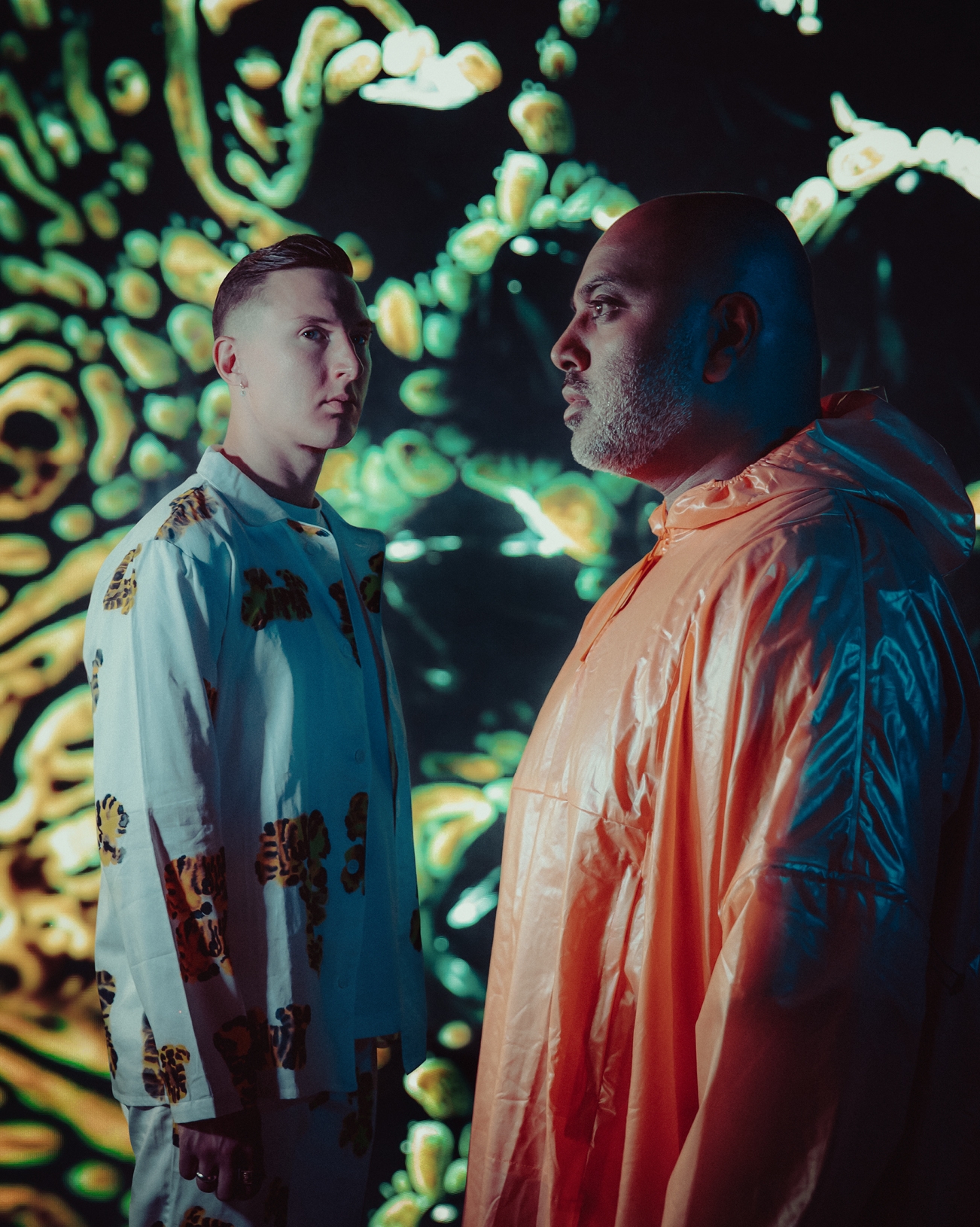
“I had quite deep-rooted ideas about what this show was going to be. I can say quite unashamedly, it was an idea that I borrowed from a performance by The Who that I saw when I was about 18 or 19,” Gove laughs. “They put out a film called Quadrophenia, and when it came out, it was chopped up into small sections and played between tracks. While watching that - and this is me not knowing much about The Who apart from the fact that some of my older family members were really into them - I wasn't really in Wembley Arena. I felt transported to a yesteryear of Britain.”
20 years later, that brooding idea is now made flesh. But when the A/V show premiered at FOLD last month, there was just one concern on Gove’s mind: J. “In many ways, I didn't make the live show for our audience, I made it for J. As long as he liked it, that's all that mattered. He had his own private screening the night before the premiere of ‘Infinite Falling Ground’ - I probably would have pulled the show the following night and taken it back into edit if he turned around and said, ‘I'm sorry, I don't like this’,” Gove explains. “But that's unsurprising because that's how we make music. I don't make music for anyone else, I make music for J, and as long as he likes it we put it out, and he does the same for me. That's why this project works - we need each other's endorsement in order to have the confidence to put anything out into the world.”

In the roadmap to getting where they are today, Gove and J have built an incredible friendship that relies quite heavily on appraisal. “The last year has been really intense for both of us,” Gove starts, “We're both in very complicated relationships with the music industry for different reasons.” Through it all, and even with J stepping away for the time being, Gove asserts: “I really would like to add that I'm incredibly proud of what he's doing. I think that for any musician who feels that those opportunities are available to them, to go away and explore other sides of themselves that aren't just the day-to-day music making and going on the road.” It’s something Gove himself admits to being “incredibly jealous” of: “I relish the opportunity myself to step away for a prolonged period and do something else,” he says.
Read this next: The Secret DJ on how to avoid burnout
For now, Gove is quite happy juggling live shows, managing Ivy Lab’s record label 20/20 LDN, and rewriting the future of beats-based music. “I might end up being a bit more exhausted than usual, but making the space for J to go off and do what he's doing is super important for me. I know that he did the same for me when I felt like I needed to go through some exploration and personal growth.” So, how does Ivy Lab move forward? As they navigate new paths independently, the pool of creative ideas never really runs dry. As for J, he’ll continue to be there lending his hand to productions while he completes his psychotherapy studies next year.
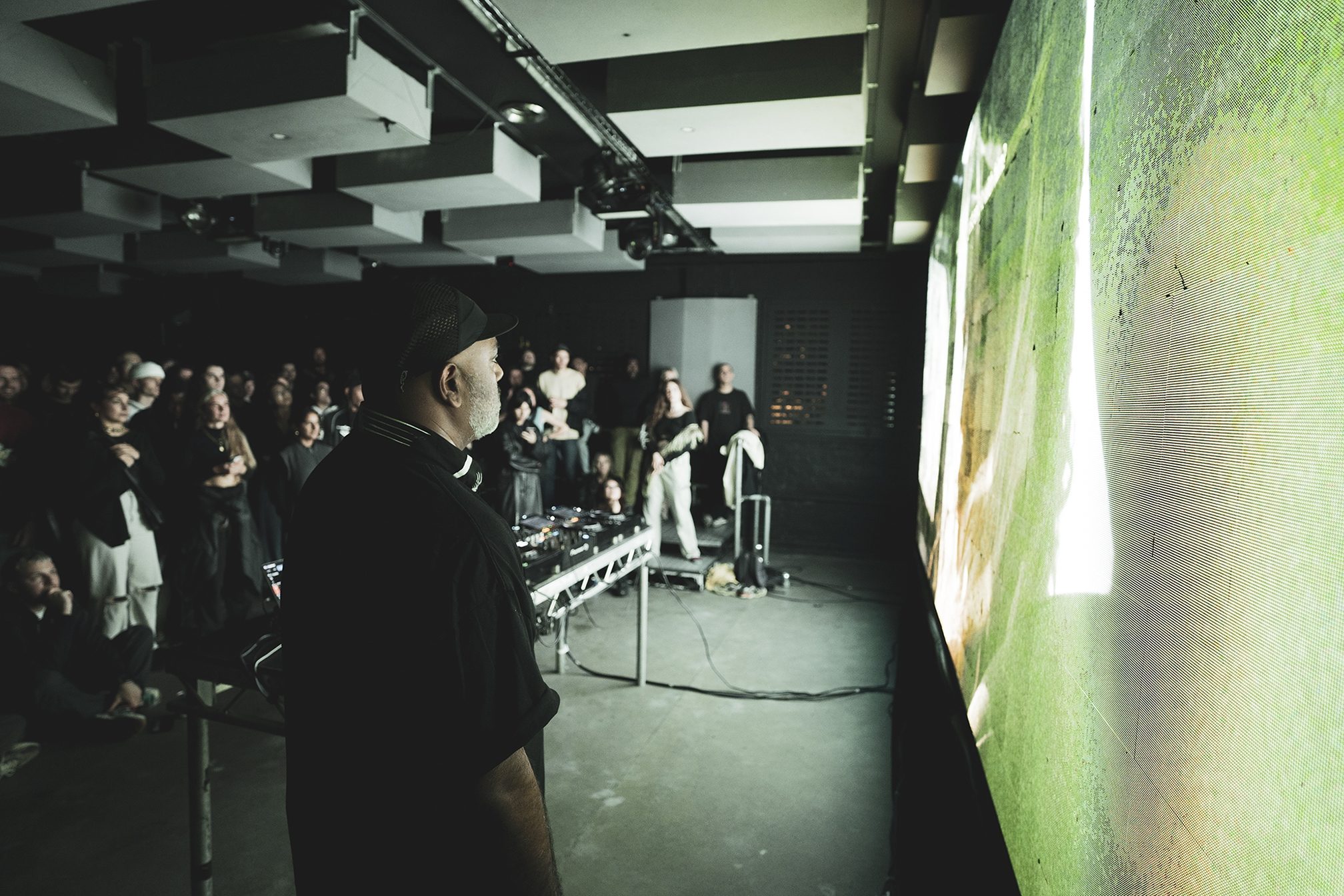
After so many years of tried and tested experiments, Ivy Lab now truly hold a license to do whatever they like, knowing full well that the beat science camaraderie will continue to stick with them. “It's only in the last couple of years that I feel like we’ve managed to transition into being an electronic act that just does whatever they want to, and has now managed to, like a stone gathering moss, build up an audience who will follow us through wherever we throw at them,” Gove smiles. “Which is a nice position - we’ve moved away from being an act that plays bangers into an act that does something more cerebral, and we’ll try to double down on that as much as possible.”
“There's never going to be a massive audience and we've never going to be huge. I don't think, culturally, our music is capable of going in that direction. Can we perhaps be involved in the birth of a new genre or a new idea? Maybe, especially if we are where we hope we are, which is graced with the fanbase who just follow us around through whatever we do. Let’s find out the hard way.”
Ivy Lab's new album 'Infinite Falling Ground' is out now, get it here
Gemma Ross is Mixmag's Editorial Assistant, follow her on Twitter


